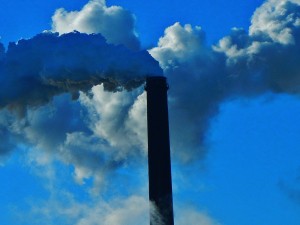There is something systemically very wrong with the globe. When the global temperature rises, it’s an indication of a global imbalance, which tells us that something is systemically wrong with the planet.
We are living in an exciting time when science and technology are coming up with new inventions and innovative ideas every day. We are also living in a troubled time when we are realizing that our own actions might have been what got us into the trouble in the first place.
In one hand, we see tremendous progress in science and technology. We are exploring deep space and deep seas , and everywhere we look, we see new devices and innovations. On the other hand, there are issues like pollution, shortages of energy resources, income inequality, food insecurity, drought, and irregular weather patterns, which should not happen.
There are massive environmental, economic, and social issues affecting billions of people around the planet. We cannot deal with just local or regional issues and think that we are safe because in today’s world, any event that happens in one corner of the earth affects the entire planet. When we look at the bigger picture, we will clearly see that the problems need to be addressed systemically, as this is a systemic problem of the Earth.
When the old ways don’t work, it’s time to change our ways and find something new. If we continue to do what we’ve been doing, we will dig ourselves deeper into trouble.
Future of World’s Top Industries
The term “externalities” has become a very familiar term in environmental circles, which refers to a cost imposed by business but that is not paid by them. For example, smoke from an industry can pollute the air and chemicals can contaminate the waters, and they don’t have to pay for the health care costs when people become sick. In this way, business picks up the profit while people pick up the costs. .
 In a recent article of Gist, David Roberts said about the above notion that “It brings to mind incrementalism: boost a few taxes here, tighten a regulation there, and the industrial juggernaut can keep right on chugging. However, if we take the idea seriously, not just as an accounting phenomenon but as a deep description of current human practices, its implications are positively revolutionary.”
In a recent article of Gist, David Roberts said about the above notion that “It brings to mind incrementalism: boost a few taxes here, tighten a regulation there, and the industrial juggernaut can keep right on chugging. However, if we take the idea seriously, not just as an accounting phenomenon but as a deep description of current human practices, its implications are positively revolutionary.”
Furthermore, according to David, the majority of unpriced natural capital costs are from greenhouse gas emissions (38%), followed by water use (25%), land use (24%), air pollution (7%), land and water pollution (5%), and waste (1%).
The total unpriced natural capital consumed by the more than 1,000 “global primary production and primary processing region-sectors” amounts to $7.3 trillion a year — 13 percent of 2009 global GDP.
When the top five industrial sectors ranked by total ecological damages imposed were analyzed it was concluded that none would be profitable if environmental costs were fully integrated.
The Next System Project
This is a new initiative from the Democracy Collaborative. They have created a platform where great minds can come together from across the globe.
“The challenging realities of growing inequality, political stalemate, and climate disruption prompt an important insight. When the old ways no longer produce the outcomes we are looking for, something deeper is occurring.” – The Next System Project
They have launched a website called The Next System Project: National Launch Webinar You can register here and watch the event live on May 20, 2015.
Video Credit: The Next System Project
It has become necessary to increase global awareness. Sustainability depends on our actions and how we treat this world. This world needs a change, and together we can achieve the change we want to see. Please join Environmental Professionals Network for more information on global issues and solutions.
We’d love your feedback and so, please feel free to add your comments on our Facebook page, we’d really appreciate it.
Source: Environmental Professionals Network
Related articles and resources:
- Global Issues – 6 Challenges Faced By Humanity | Environmental Professionals Network
- Current Global Issues & Solutions of Environmental Problems | Environmental Professionals Network
- None of the world’s top industries would be profitable if they paid for the natural capital they use | Grist
- A systemic crisis requires systemic solutions; it’s time to talk about what’s next : TreeHugger
- The Next System Project
- democracycollaborative.org



